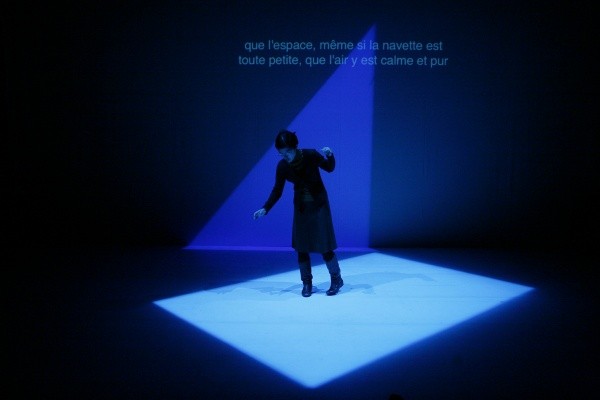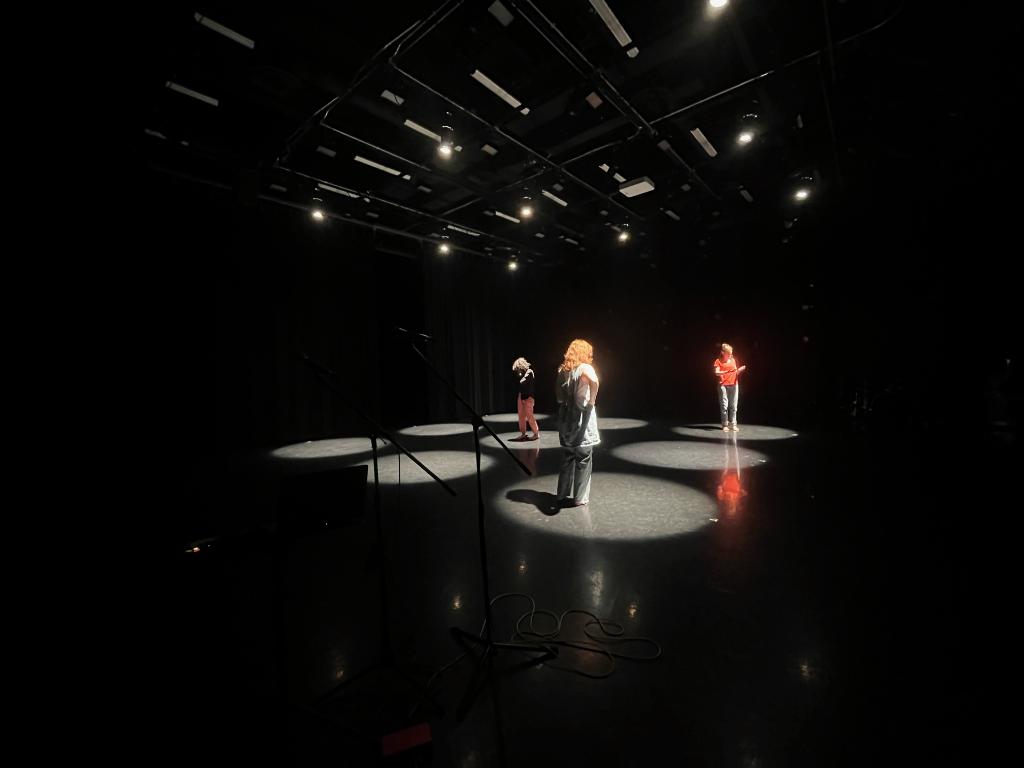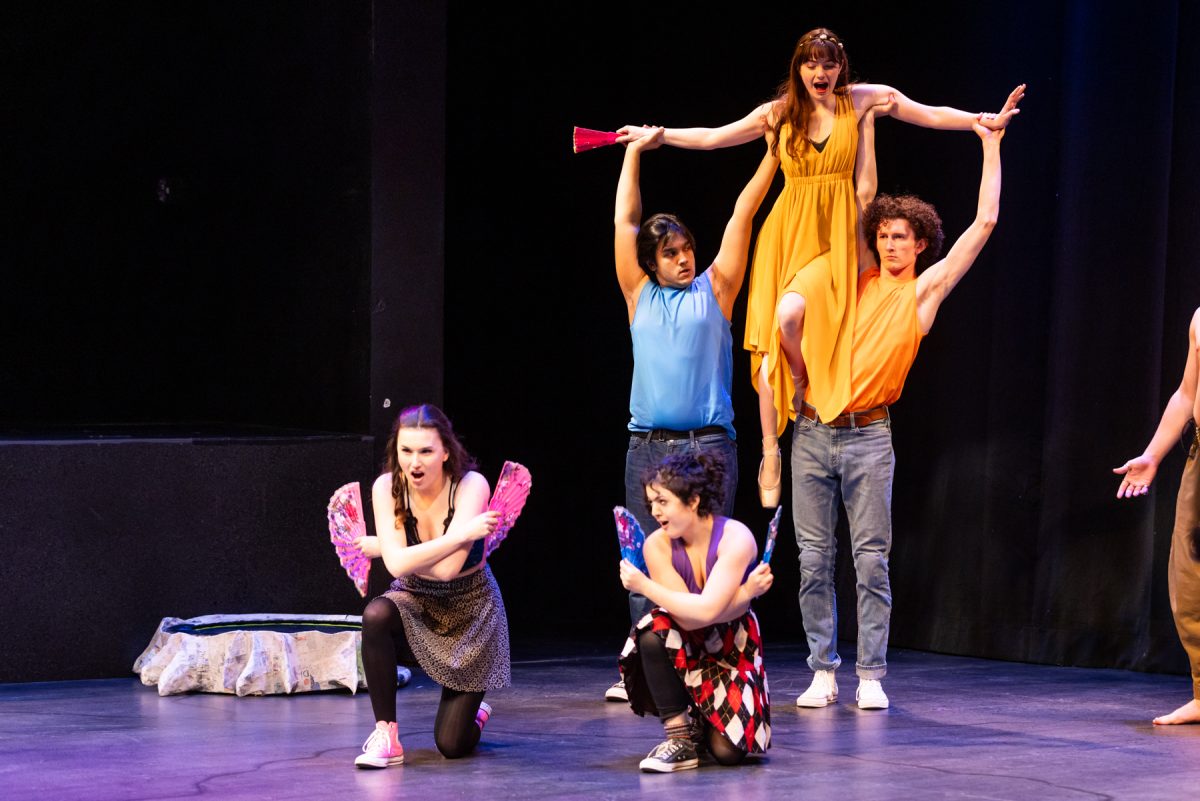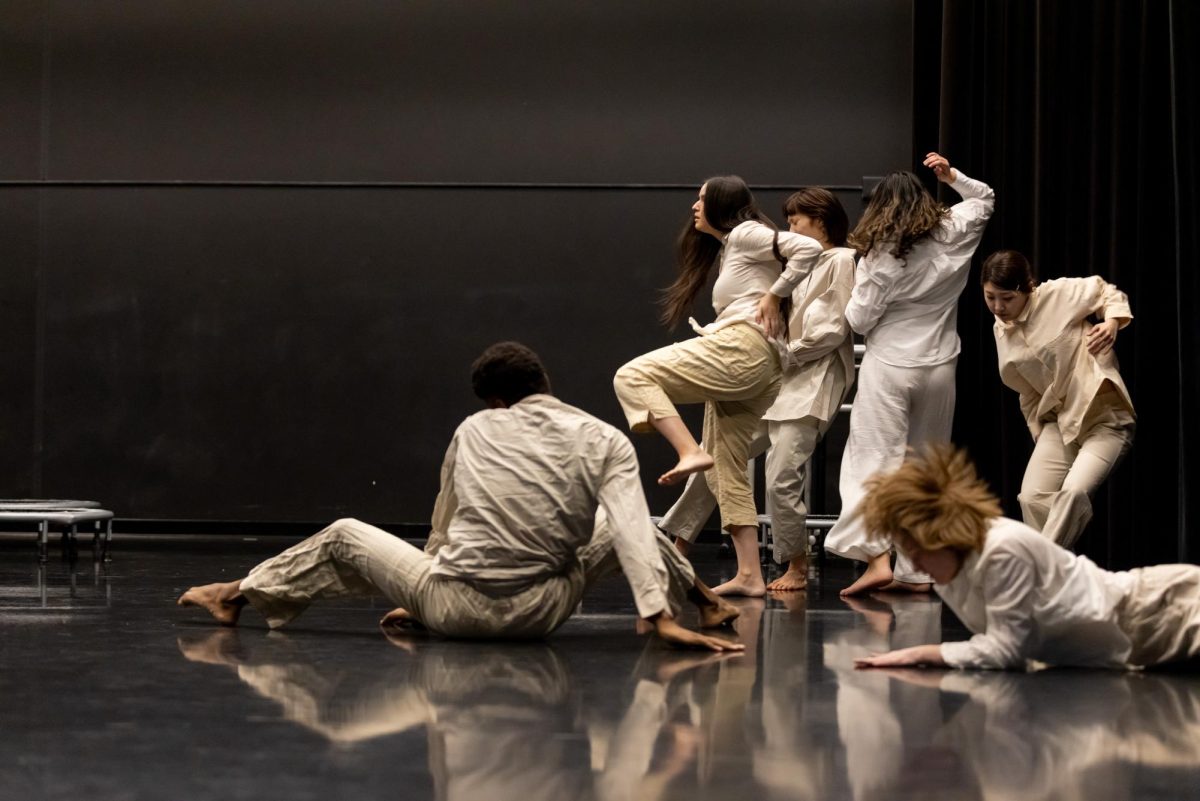WHAT: âÄúFive Days in MarchâÄù DATE:Jan. 17 WHERE: Walker Art Center, 1750 Hennepin Ave. The performance of âÄúFive Days in March,âÄù which ran at the Walker recently, is notably modern. It feels like a friend telling you the story of their weekend. The result straddles the line between being fascinating and meaningless at the same time. The company performing âÄúFive Days in MarchâÄù is a young Japanese group that calls themselves âÄúchelfitsch.âÄù Their name comes from a mispronunciation of the world âÄúselfishâÄù and is meant to represent a view of modern Japanese culture that the group seeks to portray. The play is made up of a few stories whose plots alone are pretty simple: Two lovers in a hotel, friends at a protest, a girl asking another guy for his phone number and two guys at a concert. The five days of the title refer to the first few days of the Iraq War in March 2003, when all of the action takes place. However, for the most part, the war is referenced through the charactersâÄô detached and shallow knowledge of it. The dialogue is conversational and the characters primarily seem interested in talking about other things. Two guys marching in a war protest talk about the restaurants around the area they are marching. People hook up in a love hotel for five straight days without exchanging names and rejoice in knowing that their fling will coincide with the beginning and the ending of the War in Iraq. In their five days, they become saddened by the price of seafood. The street-clothed youths telling the stories are constantly moving in quirky, awkward gestures âÄî stretching, massaging themselves or balancing on one leg. They deliver their stories in mostly unenthused-sounding Japanese (English subtitles projected above) and their words are often directed at the audience. The dialogue of the story is jumbled and told in a series of anecdotes. The actors pick up each otherâÄôs narratives and change from first to third person so that viewers can tell which is a re-enactment and which is the real thing. As a result, the stories are bound together in a collective confusion that makes the play flow. In many ways, the point of âÄúFive Days in MarchâÄù is to paint a picture of the docile life of the Japanese youngsters in modern times. The characters, while living fairly normal lives, are trying to grasp at significance through glazed outlooks. Near the end of the play, one of the two lovers at the love hotel walks around the town trying not to lose the feeling of the strange world she has inhabited in the past few days, though she canâÄôt quite define what that feeling is. The performance was delivered with a deadpan humor, and despite the lack of decorated rhetoric, the pacing of the stories created a compelling mix of perspectives, time frames and settings. Like listening to a friend recounting their weekend exploits (or browsing around on Facebook), âÄúFive Days in MarchâÄù remains undeniably engaging by producing a feeling that there may be some kind of meaning waiting in the quotidian âÄî if only you could just find it.

















